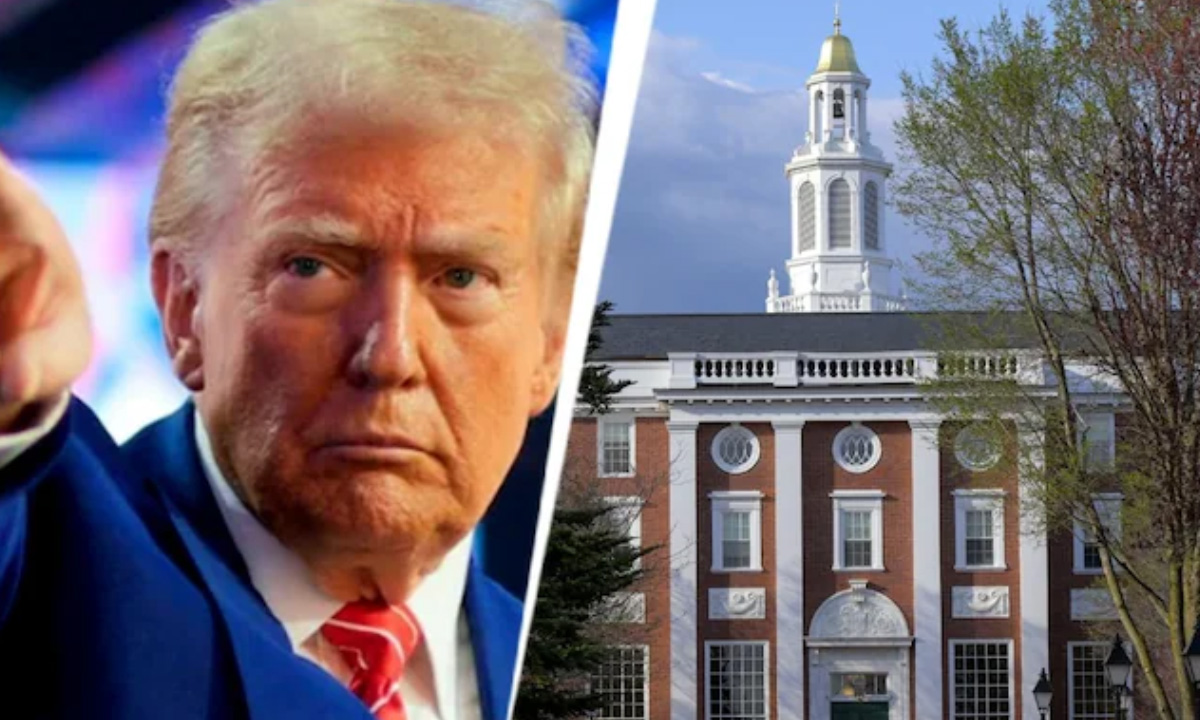Homeland Security Secretary Kristi Noem Ordered Cancellation of Harvard Student Visa Program, Shaking The Global Education System
Harvard University, one of the globally acclaimed symbols of academic excellence, is now at the center of a high-stakes court fight against the Trump administration. This legal fight was initiated by a move from the US government, which tried to restrict Harvard University from enrolling foreign students, which has put the academic future of many foreign students into uncertainty.
This move was declared to be initiated as a measure to protect national security. However, it immediately shook the academic sector of the USA and was challenged in court. For now, a federal judge is blocking this decision. However, the impact of this move went far beyond this legal order, raising profound questions about academic freedom and global talent. Most importantly, it poses a big question mark in the United States’s role in international education.
A Clash Over Ideology and Autonomy
On May 23, 2025, the Department of Homeland Security issued the order and revoked Harvard’s ability to admit foreign nationals. The order stated probable security risks, as it mostly targeted Harvard University’s lack of transitory regarding its international student population, which comprises approximately 31% of its enrollment.
Purporting that Harvard harbored antisemitism and failed to address ideological issues, the administration demanded a list of foreign students to determine possible threats. Having refused to comply, Harvard had its Student and Exchange Visitor Program certification revoked, practically closing the doors to international students at Harvard.
In response, Harvard called the government’s action “unlawful” and said it was “fully committed” to educating foreign students. In a statement, the university mentioned, “This retaliatory action threatens serious harm to the Harvard community and our country, and undermines Harvard’s academic and research mission.”
This decision instantly fills the future of thousands of international students with uncertainty, including some renowned names like Princess Elisabeth of Belgium and Cleo Carney, the daughter of Canadian Prime Minister Mark Carney.
Harvard filed a petition for reinstatement in court, claiming that the action was taken in retaliation against the university and abridged the university’s exercise of First Amendment rights and institutional autonomy. Because a federal judge issued an injunction temporarily barring the administration from taking any action, the dispute remains in the courts.
Global Ramifications and the Erosion of Academic Freedom
The academic world has been shocked by this crackdown. International students have been studying in Harvard University for decades and most importantly these foreign students contribute immensely to the US economy; estimates are about US$43 billion annually. They are crucial for innovation and cultural activities as well. However, at Harvard alone, there are over 7,000 foreign students, many of whom face uncertain futures in their education.
Moreover, this move has presented other countries with a golden opportunity to attract foreign students with more benefits and academic opportunities. Nations like Hong Kong took this chance immediately to actively source displaced students by granting fast-track admissions and supporting them. If this goes on, the U.S. will soon lose its international clout of being the easiest venue for higher education and research.
Conclusion
The recent Trump administration’s actions against Harvard mark a significant departure from the United States’ longstanding commitment to academic freedom and global engagement. From all over the world, the most talented students come to the US to study in universities like Harvard, and this sector has been free of politics over decades.
Now that the US president is trying to politicize education by targeting foreign students, a long-lasting impact awaits. It will risk the factors and principles that have made American universities the core leaders in innovation and scholarship. As legal proceedings unfold, the broader implications for global education and the United States’ role within it remain a pressing concern.























